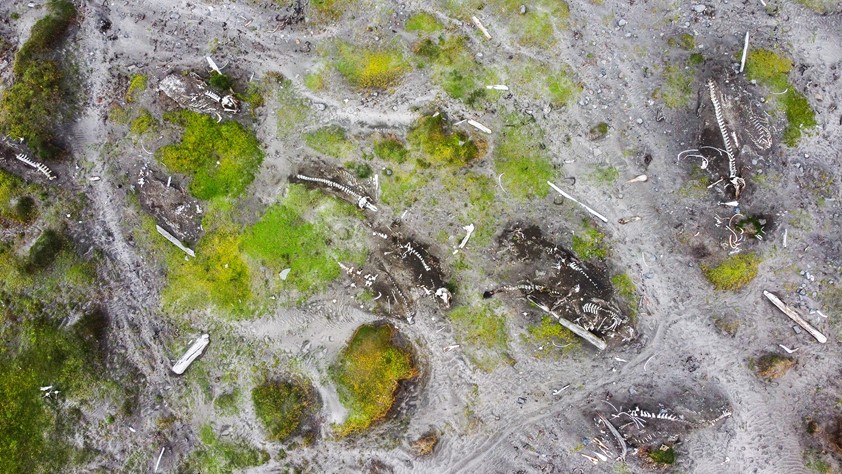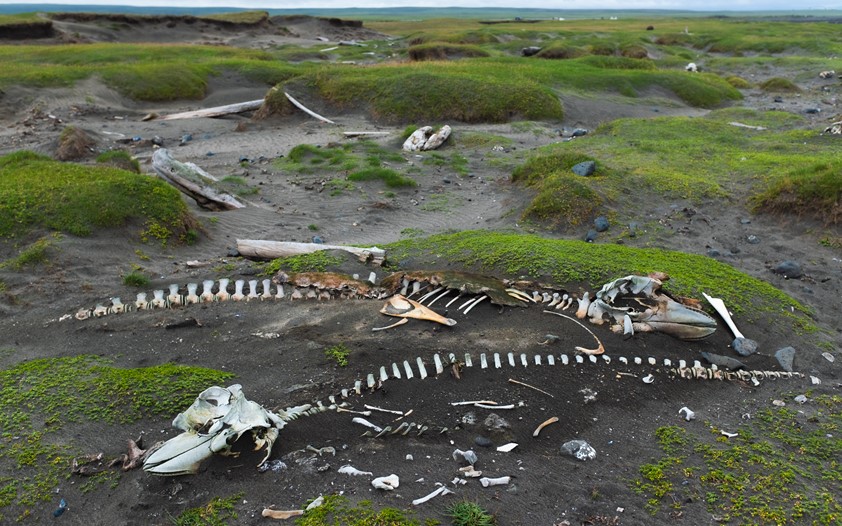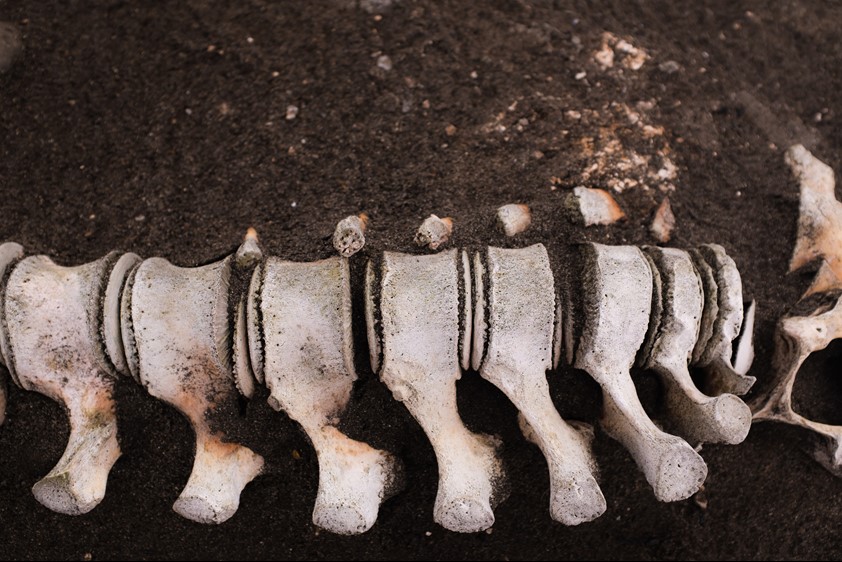HVALREKI

Hvalreki is an Icelandic word that refers to a whale stranding, which means that a whale or a group of whales end up alive and trapped on land.
It is something that has been recorded for many years all around the world. Here in Iceland, there are few records of mass strandings, mostly of long-finned pilot whale.
Some of the cases reported are the one of 1983 where 30 pilot whales stranded on Snæfellsnes and the one of 1986, the biggest stranding record in Iceland where 148 pilot whales died at Þorlákshöfn. In the year of 2019 two mass strandings were reported, one in Snæfellsnes where 50 pilot whales were stranded and one in Langanes peninsula where 30 pilot whales were stranded.

Sometimes when these events are noticed right after they happened, several efforts are made to take the animals back to sea. Unfortunately, here in Iceland many of the areas where these events happen are very difficult to access, making the act of helping them almost an impossible task.
Pilot whales are normally known for mass stranding due to their tight social connections an for never leaving a member of their pod alone. Pilot whales always move in pods, that can vary from 10 to more than 100 animals, and the pods are normally led by an individual which is their matriarch.

But why do they strand? What leads them to this unfair end?
The causes are still a bit of a mystery for the scientific community but it is believed that can be a result of navigation errors which lead pods to abruptly shallow areas, geomagnetic anomalies that disrupt orientation, and distress caused by human interference. (Xuereb et al., 2023).
Another cause that can lead these animals to shore is if they are sick or hurt, disabling them from properly swimming and not being able to go against currents.

Photographs were taken by our guide Rui Duarte.
- Sara
